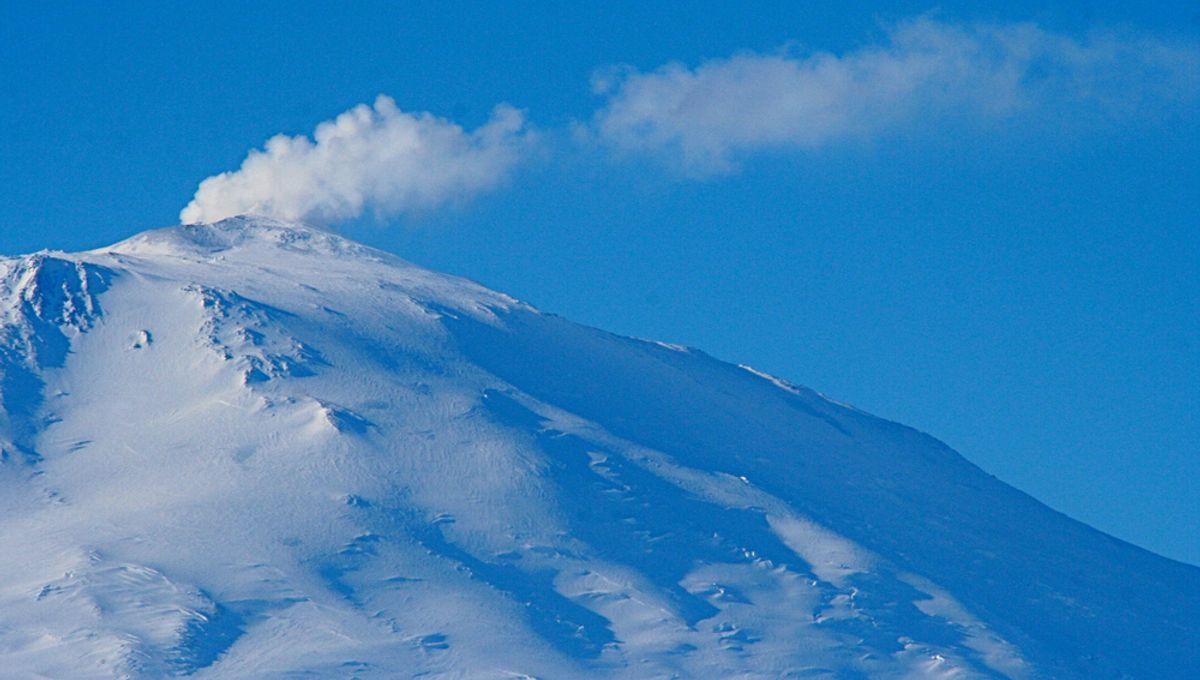
Amid its towering ice sheets, Antarctica conceals a fiery secret, a landscape dotted with volcanoes. Most remain dormant, inactive, or buried beneath the ice, but some speculate that as the surrounding ice melts, these sleeping giants could stir back to life.
The last major melting event on Earth occurred between 12,000 and 7,000 years ago following the last ice age. During this period of deglaciation, volcanic activity on land increased by two to six times compared to normal levels. Scientists believe the spurt of eruptions was caused by the melting of glaciers, which eased pressure on the Earth’s mantle, allowing more magma to rise and blurt out to the surface.
Now, a new era of warming is upon us due to human-driven climate change. It was once assumed (or hoped) that Antarctica would be relatively immune to the most acute effects of the warming world, but the region is increasingly showing signs of stress, including intense heatwaves and shocking levels of ice loss.
We are entering uncharted territory, but it’s possible that ice loss from climate change could trigger an increase in volcanism in Antarctica, similar to what occurred during the previous period of deglaciation. As Science recently put it: “As the weight on the volcanoes is lifted, the gases trapped in magma are released like the fizz in an uncorked bottle of champagne, driving eruptions.”
Over 130 known volcanoes sit in Antarctica, many of which are below the ice itself, but only a few are considered to be active. The most prominent is Mount Erebus, the tallest active volcano in Antarctica, which has been erupting continuously for decades, spewing out gold dust as it does so.
If some of these volcanoes were to be rebooted by ice loss, it could create a spiraling volcano–ice melt feedback loop. During the last deglaciation, increased volcanism helped to further accelerate the ice sheet loss. This was primarily because of the release of dark ash that enhanced the albedo effect, whereby darker surfaces absorb more heat, compared to lighter ones.
A similar effect might occur in Antarctica if climate change were to provoke volcanoes into fiery fury. Researchers have pondered whether an eruption of under-ice volcanoes could help to loosen the ice sheet of West Antarctica, causing significant chunks of the continent’s thick interior ice to slip into the ocean, raising sea levels.
The increased volcanic activity would also pump out more greenhouse gas emissions into the atmosphere, lifting Earth’s temperature further. This, in turn, could lead to more ice loss, triggering more eruptions, and so on.
Much of this is hypothetical – after all, we’ve never experienced a comparable period of human-driven climate change in such a short space of time. Climate change is real and it’s already affecting our world, but the impact it will have on volcanic activity is not deeply understood.
Scientists have pointed out that we should be careful when making comparisons between the last deglaciation of Earth and human-driven climate change, especially in regards to its link to volcanism, since the timescales and dynamics are very different. Volcanic eruptions, in general, are also notoriously difficult to predict, even without considering the added complexity of climate change.
Nevertheless, the effect of climate change on volcanism is a subject that some researchers are keen to understand further.
“The difficulty in this field of study lies in the time scale. Volcanic systems are built up over several hundred thousand years, whereas climate change takes place over a few decades. We don’t yet have enough hindsight to have a clear vision of the changes underway in volcanic activity,” Virginie Pinel, Research Director of Volcanology at the French National Research Institute for Sustainable Development, told Polytechnique Insights earlier this year.
“Nevertheless, climate change represents an opportunity for us to better understand the factors that modulate and trigger eruptions, like a life-size experiment.”
An earlier version of this story was published in 2024.
Source Link: Could Antarctica's Dormant Volcanoes "Reawaken" In The Future?